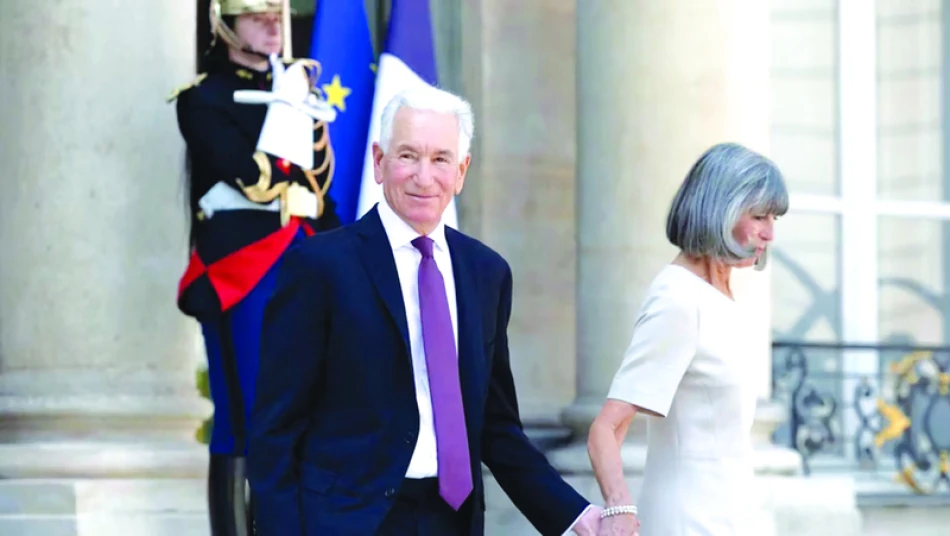
Trump Administration Impedes US Diplomats Abroad with Rising Obstacles and Challenges
Trump's Diplomatic Bulldozer: How America's New Power Politics is Alienating Key Allies
President Donald Trump's aggressive diplomatic approach is creating unprecedented friction with longtime allies, as both France and Denmark have summoned senior U.S. diplomats for formal protests—a rare rebuke typically reserved for adversaries. This shift from traditional diplomatic courtesy to raw power politics signals a fundamental reimagining of American foreign relations that could reshape international diplomacy for years to come.
Allies Push Back Against American Overreach
In recent days, two of America's closest European partners have taken the extraordinary step of formally protesting U.S. actions through their foreign ministries. Denmark summoned the acting U.S. ambassador following intelligence reports suggesting covert American efforts to foment opposition within Greenland against Danish rule. Meanwhile, France called in newly appointed Ambassador Charles Kushner after he publicly criticized President Emmanuel Macron's government for insufficient action against antisemitism—though Kushner notably sent a subordinate rather than appearing himself.
These diplomatic protests represent more than routine disagreements. They signal a breakdown in the traditional protocols that have governed Western alliance relationships since World War II, where private channels typically resolve disputes before they escalate to public rebukes.
The End of "Speak Softly, Carry a Big Stick"
Trump's approach fundamentally abandons Theodore Roosevelt's famous diplomatic maxim of speaking softly while carrying a big stick. Instead, the current administration speaks loudly and wields the stick openly, particularly with allies who traditionally expected more respectful treatment as sovereign partners rather than subordinates.
This represents a calculated shift toward what diplomatic experts call "transactional realpolitik"—a system where relationships are based purely on power dynamics rather than shared values or historical partnerships. The implicit message is clear: if Trump perceives America as stronger, he expects compliance; if foreign governments resist, he appears willing to support efforts to change or pressure them.
Historical Precedent and Dangerous Territory
During the Cold War, both the U.S. and Soviet Union actively worked to install sympathetic governments in third countries—Iran in 1953, Czechoslovakia in 1968, Chile in 1973. However, ambassadors were typically excluded from these operations, which were handled by intelligence agencies. Trump's approach breaks this firewall, making diplomats direct participants in confrontational politics.
The 1961 Vienna Convention established that ambassadors should be respected as representatives of sovereign states while also respecting host countries by avoiding public criticism or direct interference in internal affairs. Trump's team is systematically violating these norms.
The Kushner Problem: When Ambassadors Become Liabilities
Ambassador Charles Kushner's situation in France mirrors that of Richard Grenell during Trump's first term in Germany. Grenell's implicit support for far-right European parties, including Germany's Alternative for Deutschland, and criticism of Chancellor Angela Merkel led to his effective isolation by the German government. While never expelled, Grenell became diplomatically useless—popular in Washington and Tel Aviv, perhaps, but unable to advance American interests in Berlin.
Kushner faces the same trajectory in Paris. His public criticism of the French government may play well domestically, but it eliminates his effectiveness as a diplomatic intermediary—precisely the role ambassadors are meant to fulfill.
Market and Strategic Implications
This diplomatic disruption carries significant economic and strategic costs. France and Denmark are not just allies but crucial partners in NATO, trade relationships, and global security cooperation. Diplomatic tensions can quickly spill over into economic disputes, affecting everything from defense contracts to technology partnerships.
For investors, this signals increased volatility in transatlantic relationships that have provided stability for decades. Companies operating across these markets may face new uncertainties as traditional alliance structures become unreliable.
The Greenland Gambit
The Greenland situation is particularly revealing. The island holds massive strategic value due to rare earth minerals, Arctic shipping routes, and military positioning. By allegedly supporting internal opposition to Danish rule, the U.S. is treating a NATO ally like a colonial power ripe for destabilization—a approach more reminiscent of 19th-century great power competition than modern alliance management.
A Return to Pre-1945 Power Politics?
Trump's approach raises fundamental questions about whether America is abandoning the rules-based international order established after World War II. That system, built through institutions like the United Nations and NATO, was designed to prevent the kind of unconstrained great power competition that led to two world wars.
The current administration appears to be testing whether raw power projection can achieve better results for Americans than the previous system of alliance management and institutional cooperation. This represents the most significant challenge to the Western diplomatic order since the Soviet collapse.
The Diplomatic Endgame
History shows that when ambassadors become ineffective, governments find other channels—or relationships deteriorate entirely. During the author's experience as British ambassador to Côte d'Ivoire, President Laurent Gbagbo expelled diplomatic staff who challenged his rejection of election results. Ultimately, Gbagbo left power, but not before diplomatic relations had completely broken down.
The risk now is that America's closest allies will simply bypass traditional diplomatic channels, creating parallel systems that exclude Washington from crucial conversations. This would leave America more isolated precisely when global challenges—from China's rise to climate change—require coordinated responses.
The ultimate test will be whether Trump's confrontational realpolitik delivers better outcomes for American interests than the alliance-based system it's replacing. Early evidence suggests it may achieve short-term compliance at the cost of long-term partnership—a trade-off that could prove strategically disastrous.
Most Viewed News

 Sara Khaled
Sara Khaled






